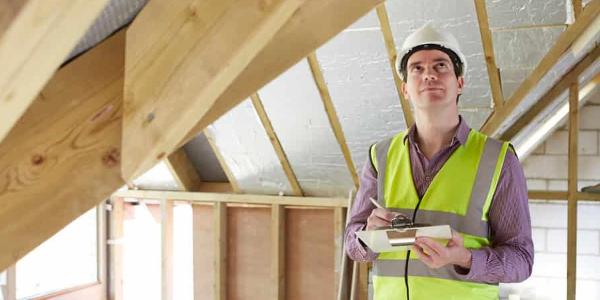Stay Informed: Understand the Newest Modifications to the Florida Building Code

By All Points Tile and Slate.
Ensure you are adhering to the most updated building regulations and standards when working throughout Florida.
There are key modifications to the 2023, 8th edition of the Florida Building Code (FBC) that every contractor will benefit from understanding. By staying informed with building regulations and the latest standards, you can ensure adherence to structure, safety and sustainability within the roofing and construction industries. The new edition affects a variety of construction topics including building design and roofing practices that are valuable to understanding before installing any roofing system.
What is the most current edition of the Florida Building Code?
The latest edition of the Florida Building Code is the 8th edition, set for 2023. This edition is a result of the amalgamation of the 7th edition (2020) FBC and the proposed supplements, adhering to a periodic update process every three years as specified in sections 553.73(3) and (7) of the Florida statutes.
The supplements, crucial to the new edition, include all modifications that have secured a 75 percent majority vote of the commission, along with amendments and modifications previously adopted by the commission.
The 8th edition brings significant changes, impacting various aspects of building design, construction and roofing practices, making it crucial for professionals to stay informed about these modifications.
The most recent effective date of the latest Florida Building Code is January 31, 2023. However, the implementation of this code begins on December 31, 2023, and continues through the subsequent six months into 2024.
Changes for roofing in the 8th edition
The 2023 updates to Florida’s Building Code introduce several changes for roofing, catering to improved clarity and understanding primarily through spelling and grammatical revisions. For example, references to Dade County have been updated to Miami-Dade, and self adhering is corrected to self-adhering in two instances for accuracy.
The code addresses vital aspects like underlayment and nail penetration depth, ensuring enhanced roofing performance and longevity. The update also streamlines the 25% roof replacement guidelines by removing specific scenarios, making it essential for roofing professionals to stay informed and comply with the latest regulations in the roofing industry.
Asphalt underlayment and installation
The 8th edition of the Florida Building Code includes roofing updates in sections 1518.2.1, specifically addressing asphalt installation and underlayment. The revised guidelines now state that two layers of underlayment must be installed for asphalt shingles, metal roof panels or shingles, mineral surfaced roll roofing, slate and slate type shingles.
Underlayment
The underlayment should be ASTM D226 Type II or ASTM D4869 Type III, Type IV or ASTM D8257. The installation involves applying a strip of underlayment for the first course, which is half the width of a full sheet, starting at the eaves and sufficiently fastened. A full sheet of reinforced underlayment is used for the second course, starting at the eave. Subsequent courses should overlap half the width of a full sheet plus two inches, with all successive courses overlapping half the width of a full sheet plus one inch.
There are corrections for Section 1518.2.1, which involve changing the width dimension of the self-adhering polymer modified bitumen membrane from 3-3/4 inches to 95 mm. This conversion was overlooked in previous sections but is now rectified in other areas of the building and residential codes areas.
The updated code also introduces improvements in installing a two-layer underlayment system. This change was initially introduced in R10071-A5, addressing item three in Section 1507.1.1.1. This improvement is incorporated into FBC residential section R905.1.1.1 in R10073-A3. The proposal now aims to extend these changes to section 1518.2.1 to establish consistent requirements for two-layer underlayment systems within and outside the High-Velocity Hurricane Zones (HVHZ).
Table 1518.2.1 requires two corrections. The first one addresses the correct standard, which should be ASTM D6757 instead of ASTM D675. The second correction involves changing the minimum nail penetration through sheathing or planks from 3/16 inches to 1/8 inch to maintain consistency throughout the FBC building.
Overall, these updates aim to improve roofing practices, ensuring better adherence to standards and promoting safer and more reliable roof installations across Florida.
Installation of mechanically fastened roof tile systems (direct deck and counter battens)
The Florida Building Code has introduced additional underlayment modifications, specifically focusing on modifications for installing mechanically fastened roof tile systems with direct deck and counter battens only.
For roofs with a 4:12 or greater pitch, single-ply underlayment utilizing battens or direct deck are no longer referred to as nail on underlayment, according to reference 3.01E.
Another modification has been made in the Roofing Application Standard (RAS) No. 120-20, addressing mortar and adhesive set tile application. The rationale behind these proposed changes is to eliminate the term nail on or any reference to systems with mechanically fastened base sheets and cap sheets set hot, cold or self-adhered.
By implementing these updates, the Florida Building Code seeks to establish uniformity and consistency in the language used across various sections and standards. Removing outdated and unnecessary references ensures clarity and helps roofing professionals adhere to the most up-to-date guidelines for underlayment applications. These changes are part of the continuous efforts to improve roofing practices, promote safety, and maintain compliance with the latest industry standards within the FBC building and FBC residential codes and RAS 130.
25% roof replacement rule
The Florida Building Code has recently undergone updates to the 25% roof replacement rule, which has been eliminated in certain situations due to SB-4D, enacted on May 26, 2022.
The 25% rule previously required roofs to be replaced if more than 25% of the roof surface was damaged. If your roof was constructed or replaced after March 1, 2009, it will likely comply with the 2007 Florida Building Code.
Consequently, you will only need to repair the damaged portion of the roof rather than replace the entire roof if more than 25% of it is affected.
However, for homes built before March 1, 2009, without a prior roof replacement, the previous 25% rule still applies, necessitating a full roof replacement if more than 25% of it is damaged.
The Florida building commission will incorporate this exception into the Florida Building Code through a rule adoption process. It is essential to note that local governments cannot introduce administrative or technical amendments to this exception under s. 553.73(4).
These 25% roof replacement rule updates aim to streamline the roofing repair and replacement process, providing property owners with more flexibility and cost efficiency when addressing roof damage. By focusing on the affected portions rather than requiring full replacements, the code adjustment reflects a more practical and pragmatic approach to roof maintenance and construction, benefiting both homeowners and the building industry.
Stay up to date with compliance
In light of the recent 2023 updates to the Florida Building Code, homeowners and contractors must stay informed about the changes and ensure their roofs remain compliant. With the discontinuation of the 25% roof replacement rule in certain situations, it becomes even more essential to address roof damage promptly and follow the latest regulations.
Original article source: All Points Tile and Slate
Learn more about All Points Tile & Slate in their Coffee Shop Directory or visit www.allpointstile.com.























Comments
Leave a Reply
Have an account? Login to leave a comment!
Sign In